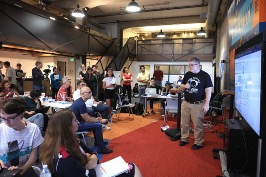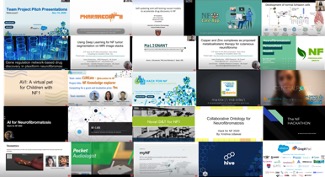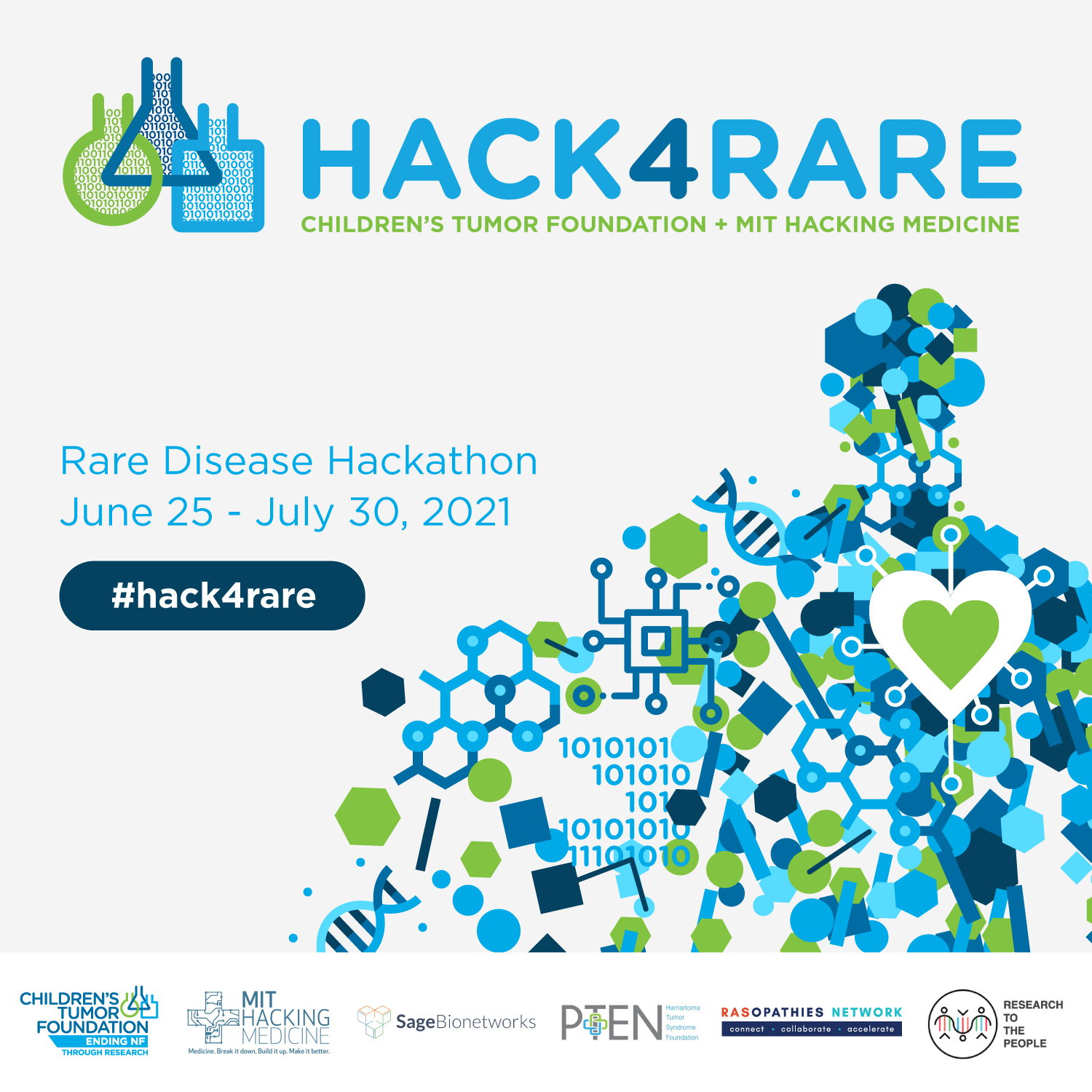 In 2019, CTF’s Science Team started a journey in organizing events that make use of research data. The data comes from grants that CTF and other funders in the NF space have been awarding to the research community for years. Thanks to a collaboration with Sage Bionetworks, this data has been organized, annotated and made available to the community, in accordance to the FAIR principles, through the NF Data Portal launched in 2018.
In 2019, CTF’s Science Team started a journey in organizing events that make use of research data. The data comes from grants that CTF and other funders in the NF space have been awarding to the research community for years. Thanks to a collaboration with Sage Bionetworks, this data has been organized, annotated and made available to the community, in accordance to the FAIR principles, through the NF Data Portal launched in 2018.
During our first Hackathon (literally a hacking marathon!) in San Francisco, we gathered about 80 talented individuals who had diverse backgrounds ranging from biology to chemistry, clinical research, computer science, software engineering, data scientists, and more. They all wanted to participate in what was presented as a high-energy weekend gathering of experts who wanted to challenge themselves by contributing their skills for a rare disease cause, while learning something new and making new connections.
The explosive mix worked, everybody had a great time, and some cool projects were presented (check this link for a summary of the 2019 hackathon). We were ready to repeat the experiment in 2020, despite a global pandemic, but then made a decisive change to pivot the event to a six-week virtual competition.  The 2020 Hack for NF virtual hackathon attracted over 400 participants globally, engaged 65 mentors and patients, received 23 project submissions and awarded 8 winning projects.
The 2020 Hack for NF virtual hackathon attracted over 400 participants globally, engaged 65 mentors and patients, received 23 project submissions and awarded 8 winning projects.
As a result of being virtual, we were able to reach a global audience and attract participants from all over the globe from as far as India to Hawaii and Australia. The new 6-week format was a solution that allowed teams to find the necessary time to get together and work on their projects virtually, but also connect with mentors, patients and the organizers to enrich their overall event experience.
The 2020 winning projects included several that were further incubated and utilized post-Hackathon:
- A mobile app for NF professionals, awarded with an incubation prize, has been selected by CTF to be an official app that will help professionals with the diagnosis of NF. (https://nfhack-platform.bemyapp.com/#/projects/5f788de5619dc7001b31de55)
- An algorithm that ranks drugs and treatments by using the scientific data provided. The researcher who developed it is presenting his completed project at the 2021 NF Conference. (https://www.synapse.org/#!Synapse:syn24317288/wiki/608247)
- A prototype for the volumetric measurement of cutaneous and plexiform NF lesions using 3D scanning technology combined with video game algorithms and techniques. (https://nfhack-platform.bemyapp.com/#/projects/5fa966aaf89614001b4eeec2)
- A self-updating causal model that reads scientific literature and extracts information to create a molecular mechanistic model of NF. This is now an official research tool published on the NF Data Portal.(https://www.synapse.org/#!Synapse:syn24316458/wiki/608245)
- A new research hypothesis to treat cutaneous neurofibromas (https://www.synapse.org/#!Synapse:syn23552461/wiki/607085)
 In 2021, we are once again evolving this concept with the launch of HACK4RARE, a virtual hackathon that expands its scope to include more rare genetic disorders called “tumor predisposition syndromes”.
In 2021, we are once again evolving this concept with the launch of HACK4RARE, a virtual hackathon that expands its scope to include more rare genetic disorders called “tumor predisposition syndromes”.
We believe that different rare disease communities can benefit from each other's learnings. As newly discovered connections are found across similar symptoms experienced by different disease patients, the underlying data can then serve as the starting point for new directions to pursue in research.
This year we are partnering with MIT Hacking Medicine, the PTEN Hamartoma Foundation, the Rasopathies Network, and Research to the People, an organization that will study a single patient case on desmoid tumors. The 2021 HACK4RARE is looking for solutions applicable to each disease community as well as the potential discovery of innovations that could benefit all of these patients.
The future is to be more inclusive and collaborative in rare disease research. Our vision is to expand the Hackathon further with more participating organizations, more data-sharing, more stakeholders, and more opportunities to engage talented individuals across different industries and expertises. By presenting challenging problems, supporting the teams with the necessary data, experts, and access to tools, creating an inclusive and diverse environment, and providing the right incentives, our goal is to build a newly engaged audience who will make a difference in the lives of rare disease patients.
We invite you to join us this June 25th at 12pm ET at the HACK4RARE Kickoff event (register here), learn more about the various tracks by registering for the introductory webinars here.

